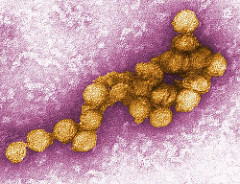While epidemics of mosquito-borne diseases continue to ravage populations in Africa, such major health crises have yet to reach North America. Nonetheless, as rates of international travel increase, so too does the likelihood of small, sporadic outbreaks transforming into something far more sinister.
Fear of mosquitoes has escalated exponentially since the late 20th century. Certain diseases such as dengue fever and Zika are well known for being prevalent in tropical areas of the world such as South America. However, diseases such as West Nile virus are also not uncommon in the United States. Since the early 2000s, cases of West Nile virus have been documented in all but two states. According to the CDC, in the past year alone over 2,000 people had recently been infected by mosquitoes carrying the virus. To avoid getting bit, individuals are encouraged to generously apply insect repellent, throw out any containers of standing water, install window screens, and cover any exposed areas of skin.
Unlike other mosquito-associated diseases, many individuals infected with the virus may never show signs or experience any life-threatening symptoms. One in five individuals, however, will develop a slight fever and experience symptoms such as muscle pain, diarrhea, and exhaustion. A very small percentage of individuals — usually the elderly or those with other medical conditions — could respond with a severe reaction to the virus, which may result in meningitis, encephalitis, seizures, and even paralysis.
Image Source: David McNew
Since most West Nile virus infections generate minimal reactions from those infected, doctors typically recommend that a patient take aspirin if they are in discomfort. A more severe reaction, however, would require that the infected individual be hospitalized and receive the appropriate medical attention for their symptoms.
Today, given the sheer number of mosquito-borne diseases and their effect on populations around the world, researchers are working towards developing more potent vaccinations. One set of clinical trials, being conducted by the National Institute of Allergy and Infectious Diseases, is examining the efficacy of the new AGS-v vaccine. The vaccine is uniquely designed to support the body’s immune system against a spectrum of mosquito-born diseases, including dengue fever, malaria, Zika, and West Nile virus. Rather than having the body recognize and attack the virus if a person is infected, the vaccine allows for the body to recognize and respond to the presence of mosquito saliva in the blood stream.
Despite the benefits of technological advancement, expansions in global trade and travel have allowed for the spread of many debilitating diseases to various developed countries. However, with increased recognition among the scientific community of this danger, stronger efforts have been made in recent years to develop preventative measures to combat mosquito-transmitted diseases.
Featured Image Source: Public Domain: West Nile Virus, 2002 by Cynthia Goldsmith (CDC) by pingnews.com










